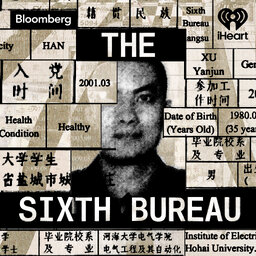Fake Fruit, Preservation and Consequences: The Wide World of Produce Conspiracies
Modern civilization is far from perfect, but it's still pretty amazing how we can often order produce from around the world, right to our doors, even if it's out of season. How does this happen? What makes it possible to preserve fruit far past its natural time -- and are there hidden consequences involved? In tonight's episode, Ben, Matt and Noel explore the wide world of produce conspiracies.
In 1 playlist(s)
Stuff They Don't Want You To Know
From UFOs to psychic powers and government conspiracies, history is riddled with unexplained events.…Social links
Follow podcast
Recent clips

Introducing: The Sixth Bureau
00:58

What is AI Psychosis?
1:23:50

Listener Mail: Lasers, Barack Obama on Aliens, and More
1:00:09
 Stuff They Don't Want You To Know
Stuff They Don't Want You To Know